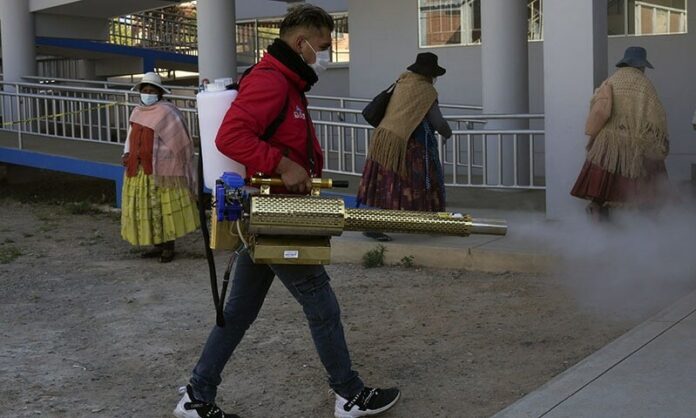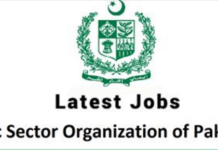کورونا وائرس کا بحران فی الحال ختم ہونے کا امکان نہیں: ڈبلیو ایچ او
The World Health Organization’s (WHO) emergency committee says there is currently no prospect of an end to the corona virus crisis and called for research to develop next-generation vaccines for long-term control of the epidemic.
According to the report, the 19-member committee meets every three months to discuss the Corona epidemic and make recommendations.
The WHO said in a statement issued after a lengthy virtual meeting that “progress has been made in vaccinating and treating coronavirus, but analysis and forecasting of the current situation show that there is no prospect of an end to the global epidemic.”
The committee called for more research into reusable masks, respirators and vaccines for the next generation, as well as for diagnosis and treatment to control the global epidemic in the long run.
The statement stressed that “the use of masks, physical distance, keeping hands clean and improving the indoor air circulation system are still necessary to reduce the transmission of corona virus.”
The committee said the long-running global epidemic has further complicated the humanitarian emergency, mass migration and other crises, so countries should reconsider their preparedness and response plans.
He expressed concern over the challenges facing global epidemics in Africa, including access to vaccines, testing and treatment, as well as data collection and analysis to monitor the evolution of the global epidemic.
According to statistics, 14 out of every 100 people in Africa have been vaccinated.
That number is 128 for every 100 people in the United States and Canada, 113 in Europe, 106 in Latin America and the Caribbean, 103 in the Pacific, 102 in Asia and 78 in every 100 in the Middle East.
The committee announced on January 30 last year that the virus was a global public health emergency (PHEIC) that was the biggest alarm bell issued by the WHO.
The committee insisted that proof of vaccination should not be required for international travel, nor should it be the only condition.
“This condition limits access to the world and promotes the unfair distribution of the corona virus vaccine,” he said.
Instead of betting, countries should “take steps from the point of view of risks to international travel, including measures such as tests and quarantine when appropriate.”
The committee also called on countries to recognize all vaccines approved by the WHO.
ورلڈ ہیلتھ آرگنائزیشن (ڈبلیو ایچ او) کی ہنگامی کمیٹی کا کہنا ہے کہ فی الحال کورونا وائرس کے بحران کے خاتمے کا کوئی امکان نہیں ہے اور اس وبا پر طویل مدتی کنٹرول کے لیے اگلی نسل کی ویکسین تیار کرنے کے لیے تحقیق پر زور دیا ہے۔
رپورٹ کے مطابق 19 رکنی کمیٹی ہر تین ماہ بعد اجلاس کرتی ہے جس میں کورونا وبا پر بات چیت اور سفارشات کی جاتی ہیں۔
ڈبلیو ایچ او نے ایک طویل ورچوئل میٹنگ کے بعد جاری کردہ ایک بیان میں کہا کہ “کورونا وائرس کی ویکسینیشن اور علاج میں پیش رفت ہوئی ہے، لیکن موجودہ صورتحال کا تجزیہ اور پیشن گوئی ظاہر کرتی ہے کہ عالمی وبا کے خاتمے کا کوئی امکان نہیں ہے۔”
کمیٹی نے اگلی نسل کے لیے دوبارہ استعمال کے قابل ماسک، ریسپیریٹرز اور ویکسین کے ساتھ ساتھ طویل مدت میں عالمی وبا پر قابو پانے کے لیے تشخیص اور علاج کے لیے مزید تحقیق پر زور دیا۔
بیان میں زور دیا گیا کہ “کورونا وائرس کی منتقلی کو کم کرنے کے لیے ماسک کا استعمال، جسمانی فاصلہ، ہاتھوں کو صاف رکھنا اور اندرونی ہوا کی گردش کے نظام کو بہتر بنانا اب بھی ضروری ہے۔”
کمیٹی نے کہا کہ طویل عرصے سے جاری عالمی وبا نے انسانی ہنگامی صورتحال، بڑے پیمانے پر نقل مکانی اور دیگر بحرانوں کو مزید پیچیدہ کر دیا ہے، اس لیے ممالک کو اپنی تیاریوں اور ردعمل کے منصوبوں پر نظر ثانی کرنی چاہیے۔
انہوں نے افریقہ میں عالمی وبا کو درپیش چیلنجز پر تشویش کا اظہار کیا، جن میں ویکسین تک رسائی، جانچ اور علاج کے ساتھ ساتھ عالمی وبا کے ارتقاء پر نظر رکھنے کے لیے ڈیٹا اکٹھا کرنا اور تجزیہ کرنا شامل ہے۔
اعداد و شمار کے مطابق افریقہ میں ہر 100 میں سے 14 افراد کو ویکسین لگائی گئی ہے۔
یہ تعداد ریاستہائے متحدہ اور کینیڈا میں ہر 100 افراد پر 128، یورپ میں 113، لاطینی امریکہ اور کیریبین میں 106، بحرالکاہل میں 103، ایشیا میں 102 اور مشرق وسطیٰ میں ہر 100 میں 78 ہے۔
کمیٹی نے گزشتہ سال 30 جنوری کو اعلان کیا تھا کہ یہ وائرس عالمی صحت عامہ کی ایمرجنسی ہے جو ڈبلیو ایچ او کی طرف سے جاری کردہ سب سے بڑی خطرے کی گھنٹی تھی۔
کمیٹی نے اصرار کیا کہ بین الاقوامی سفر کے لیے ویکسینیشن کا ثبوت درکار نہیں ہونا چاہیے اور نہ ہی یہ واحد شرط ہونی چاہیے۔
انہوں نے کہا کہ یہ حالت دنیا تک رسائی کو محدود کرتی ہے اور کورونا وائرس ویکسین کی غیر منصفانہ تقسیم کو فروغ دیتی ہے۔
شرط لگانے کے بجائے، ممالک کو “بین الاقوامی سفر کے خطرات کے نقطہ نظر سے اقدامات کرنے چاہئیں، بشمول جب مناسب ہو ٹیسٹ اور قرنطینہ جیسے اقدامات۔”
کمیٹی نے ممالک سے یہ بھی مطالبہ کیا کہ وہ ڈبلیو ایچ او کی طرف سے منظور شدہ تمام ویکسینز کو تسلیم کریں۔






















